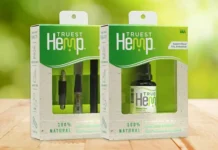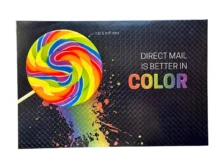by Karen Kromat, sustainable program manager, Case Paper
In January 2016, the United Nation’s Sustainable Development Goals (UN SDG) were developed. These goals have changed business culture on a global level. There are 17 goals that relate to peace, prosperity, people and the planet. The aim of this resolution is to end poverty, fight inequalities related to diversity, equity and inclusivity, as well as combat climate change.
To tackle climate change and its negative impacts, world leaders at the UN Climate Change Conference (COP21) in Paris reached a breakthrough on December 12, 2015: the historic Paris Agreement. This agreement outlined the goal to reduce global greenhouse gas emissions and to keep the temperature from increasing by 1.5° C.
Both the UN SDG and Paris Agreement have put in motion the expectation that any business in today’s market must implement environmental, social and governance (ESG) standards into its core business strategies. These efforts also significantly changed the overall definition of sustainability to incorporate much more beyond the environment.
Businesses now are facing numerous challenges, including pressures to meet sustainability disclosure requirements. These requirements affect all aspects of the company, including operations, supply chain, workforce diversity, community involvement and employee engagement. With this has come an increase in both customer and consumer demand for transparency from business leaders. They expect businesses to not only show transparency in their goals, processes and values, but also their commitments to circularity and their overall impacts on the value chain.
Let’s review what reporting directives and certifications are available for companies.
Forest Management Certification: This shows that forests are measured and maintained in an environmentally friendly manner. This can take form in many ways, but the most commonly tracked activities include avoiding any clear cutting, committing to replanting of trees, taking part in forest regeneration and protecting animal habitats. Certificates are provided by:
- Forest Stewardship Council (FSC), www.fsc.org/en.
- Sustainable Forestry Initiative (SFI), www.forests.org, is the PEFC national member for the US.
- Programme for the Endorsement of Forest Certification (PEFC), www.pefc.org, is the choice for small forest owners in Europe.
Sustainable Green Printers Partnership (SGP), www.sgppartnership.org: People. Planet. Purpose. SGP offers valid third-party certifications in an effort to build a more sustainable supply chain without any greenwashing. SGP offers recommendations for operational improvements as well as areas to reduce waste. Brands are asking for businesses to show they are acting sustainably, and this will show that the company is.
Taken from the SGP website:
“Sustainable Green Printing Partnership is a community of printing and packaging manufacturers, global brands, suppliers and supporting organizations working together to drive sustainability and meet the demands of today’s customers. Collectively, we make up the industry’s leading supply chain certification authority. Our job is to set standards, advocate best practices and promote innovation toward a more accountable, sustainable supply chain.”
Carbon Disclosure Project (CDP), www.cdp.net/en: CDP is a not-for-profit charity that shows the impact of climate on a business with reporting on climate, forests and water. This certification is all about the environment. The CDP assists organizations with building a company roadmap and designating a realistic place to start.
Companies receive analysis reports which give a clear understanding of their environmental performance. This score and assessment report can be shared on companies’ websites to show customers and brand owners their sustainability strategy.
EcoVadis, www.ecovadis.com: EcoVadis is the world’s most trusted provider of a business sustainability rating system. Companies are rated on environment, labor and human rights, ethics and sustainable procurement. Each of these categories has 21 criteria for which a company is measured. Participating companies will receive a universal scorecard along with improvement tools. They will provide a customized questionnaire tailored to the company’s industry, where the company’s operations are located and the size of the company.
B-Corp, www.bcorporation.net/en-us: B-Corp is a nonprofit that is part of a growing movement to build greater social and environmental responsibility for businesses around the world. Participating businesses have to meet high standards of social and environmental performance, accountability and transparency. Companies will receive an assessment of their performance based on the environment, community, customers, suppliers and employees.
CSRD 2023 EU, Corporate Sustainability Reporting Directive, https://finance.ec.europa.eu/regulation-and-supervision/financial-services-legislation/implementing-and-delegated-acts/corporate-sustainability-reporting-directive_en: On January 5, 2023, the Corporate Sustainability Reporting Directive (CSRD) entered into force. This new directive modernizes and strengthens the rules concerning the social and environmental information that companies must report.
For the first in-scope year, 2024, only large US companies that are listed on an EU-regulated market and have more than 500 employees will be subject to the CSRD.
These are certifications now in the realm of sustainability but are ever-changing as new updates, laws, rules, etc. come into play. The one thing to be certain of is that this is the way of the future. As a business owner, know that the sustainability strategy will determine what path the company will follow.
Karen Kromat’s story started over 30 years ago as a graphic designer. Her diverse experience has touched many platforms within the industry. Kromat was a co-owner in a marketing firm, and she spent 12 years working for European and Asian paper mills, selling paper and paperboard in the Midwest. She’s been involved in product development and business development projects. She now has landed in the sustainability arena at Case Paper, an 80+-year-old paper and paperboard merchant, converter and laminator. Learn more at www.casepaper.com.





